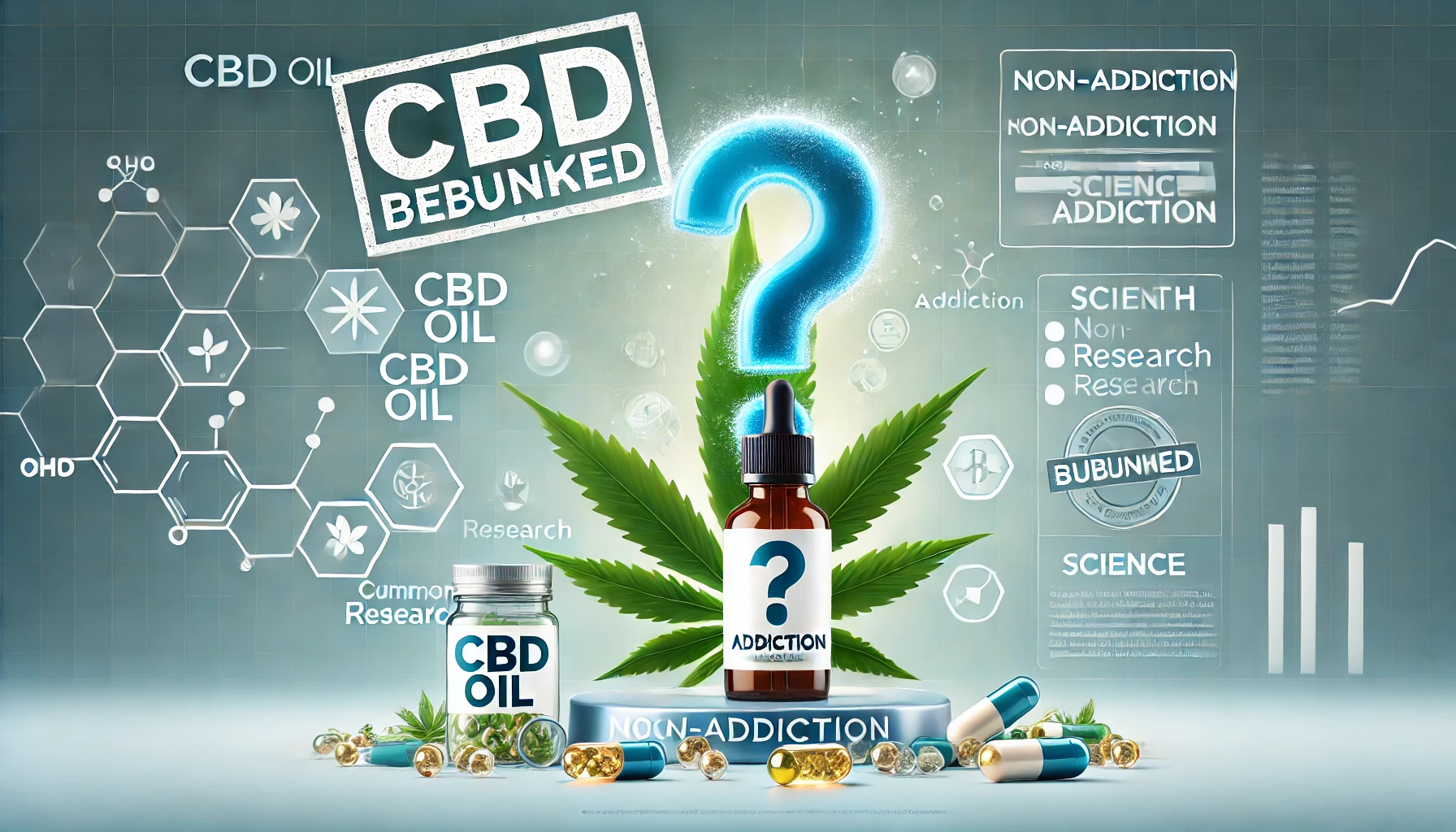As the popularity of cannabidiol (CBD) rises, so do questions and concerns about its safety and potential for addiction. Many people wonder if this natural compound, derived from the hemp plant, carries the same risks as other substances. In this post, we will debunk common myths surrounding CBD addiction and provide you with factual information to help you make informed decisions about its use.
Understanding CBD and Its Effects
CBD is a non-psychoactive compound found in cannabis. Unlike THC (tetrahydrocannabinol), CBD does not produce a „high.” Instead, it interacts with the body’s endocannabinoid system, which plays a crucial role in regulating various functions such as mood, sleep, appetite, and pain. Because of its calming effects, many people use CBD to manage anxiety, stress, and other conditions.
Common Myths About CBD Addiction
Myth 1: CBD is Addictive
One of the most significant misconceptions is that CBD can lead to addiction. Research indicates that CBD does not have the same addictive properties as substances like opioids or THC. According to the World Health Organization (WHO), there is no evidence that CBD poses a risk of dependence or abuse. In fact, CBD may even help individuals struggling with substance abuse disorders by reducing cravings and withdrawal symptoms.
Myth 2: CBD Causes Withdrawal Symptoms
Some people believe that stopping CBD suddenly can result in withdrawal symptoms. However, studies show that CBD does not create dependence, and users do not experience withdrawal symptoms when they stop using it. This makes it a safer option for those seeking relief from various conditions without the fear of addiction.
Myth 3: All Cannabis Products Are the Same
Many people mistakenly assume that all cannabis products carry the same risks. However, the effects of CBD differ significantly from those of THC and other cannabinoids. While THC can lead to psychoactive effects and potential addiction, CBD provides therapeutic benefits without causing a high.
The Science Behind CBD Use
Research into the effects of CBD is still ongoing, but initial findings support its safety profile. Studies suggest that CBD can help alleviate anxiety, reduce inflammation, and improve sleep quality without the risks associated with addiction. Furthermore, CBD is generally well-tolerated, with few reported side effects.
Choosing High-Quality CBD Products
When considering using CBD, it is essential to choose high-quality products from reputable sources. Here are some tips for finding safe and effective CBD:
- Look for Third-Party Testing: Quality products undergo third-party testing to ensure they contain the claimed amount of CBD and are free from harmful contaminants.
- Check for Clear Labeling: Quality manufacturers provide clear and informative labeling, including dosage information, ingredients, and sourcing details.
- Consider the Extraction Method: CO2 extraction is considered the gold standard for producing high-quality CBD oil. This method ensures purity and potency while removing unwanted compounds.
- Read Reviews and Testimonials: Customer feedback can provide valuable insight into the effectiveness and quality of a CBD product.
Conclusion: Debunking the Myths About CBD Addiction
Understanding the facts about CBD and its potential effects is crucial for making informed decisions about its use. Research indicates that CBD is not addictive, does not cause withdrawal symptoms, and offers therapeutic benefits without the risks associated with other substances. As you explore the world of CBD, prioritize high-quality products and consult with a healthcare professional if you have questions or concerns.
By debunking common myths, we can embrace the potential of CBD as a natural solution for various health issues without fear of addiction.
